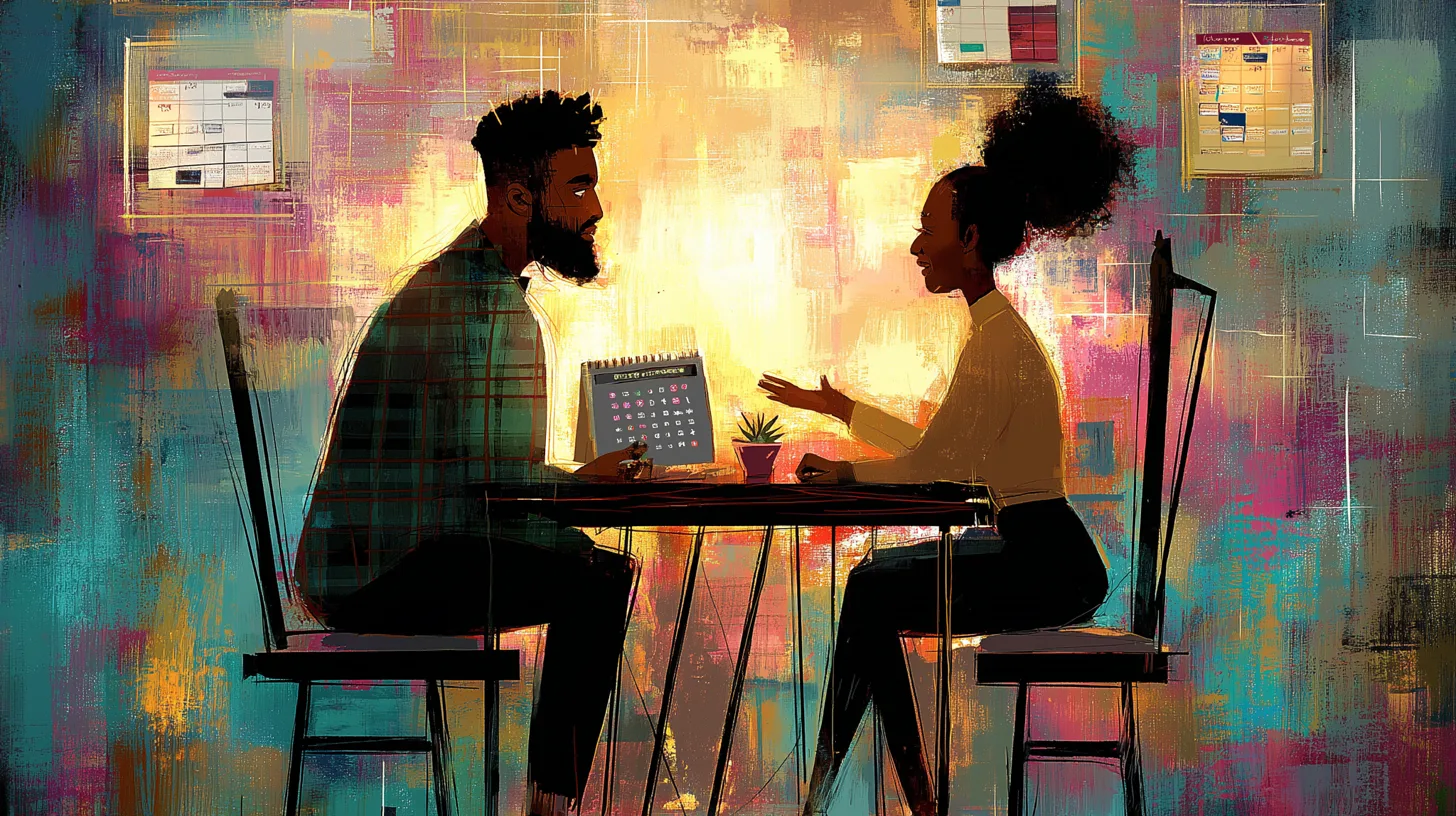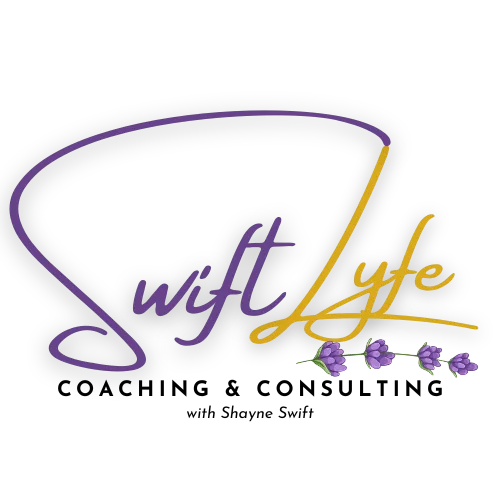By Shayne Swift | Swift Lyfe Coaching & Consulting
ADHD is hard—and it’s even harder when you don’t understand what it’s like to live with it day after day. One of my clients, who I lovingly refer to as ADHD+, recently asked me to meet with his partner. Like many ADHDers, his neurodivergence doesn’t ride solo; it’s braided with layers of emotional dysregulation, executive dysfunction, and late-diagnosis self-doubt.
His goal? Improve communication.
Her feeling? Burned out.
She shared that she was overwhelmed from managing the bills, parenting responsibilities, and what she called “parenting two people.” Her words echoed what I’ve heard time and again from non-ADHD partners: “I’m carrying all the mental load.”
And she’s not wrong.
But here’s the catch: support is not the same as enabling.
🔍 The Mental Load & Misunderstood Roles
When one partner has ADHD and the other does not, it’s common for unspoken roles to emerge. The non-ADHD partner becomes the planner, the reminder, the bill-payer, the calendar, and sometimes—unintentionally—the parent.
That shift may feel necessary in the short term, but it slowly corrodes intimacy. Resentment brews. Communication suffers. And the partner with ADHD is left with fewer and fewer opportunities to step up, learn, or lead.
💡 When we take responsibility away from people with ADHD, we don’t empower them. We enable them.
🧠 ADHD, Executive Function, and the Invisible Struggle
ADHD isn’t a willpower issue—it’s an executive functioning issue. Think of the brain as a CEO that’s in charge of making things happen. With ADHD, that CEO is either out to lunch or running late with a double espresso.
Here are the 8 executive functions that ADHD can impair—and how it might show up in your relationship:
| Executive Function | How It Shows Up | What Helps |
| Inhibition | Interruptions, blurting | Pause cues, non-judgmental redirects |
| Working Memory | Forgetting bills or steps | Shared calendars, gentle check-ins |
| Emotional Control | Meltdowns over small things | Co-regulation, validation |
| Task Initiation | Procrastination | Body doubling, momentum rituals |
| Sustained Attention | Zoning out in convos | Attention anchors, eye contact |
| Planning/Prioritizing | Not knowing where to start | “What’s the next step?” questioning |
| Organization | Clutter, missed appointments | Visual systems, labeled drop zones |
| Goal Persistence | Abandoning long-term tasks | Celebrating progress, scaffolding |
💬 As covered in the ADHD Spouse Support Session Handout, these impairments aren’t signs of disrespect—they’re signs of a brain wired for a different tempo.
🗣 From Criticism to Collaboration
In our session, I shared this truth with the non-ADHD partner:
👉🏾 You’re not their parent. You’re their partner.
That distinction matters. When we shift from correction to collaboration, everything changes. Treating your partner like a co-planner—even if they need more reminders or visual cues—builds trust, not tension.
Here’s how we start that shift:
- Replace “You never remember anything” with “Can we set a shared reminder for this?”
- Replace “Why can’t you just start?” with “Would body doubling help you begin?”
- Replace “I feel alone in this” with “I want us to build a system together.”
🛠 What Support Actually Looks Like
True support means creating systems that help your partner grow, not systems that help you cope. It also means setting healthy boundaries to protect your own well-being. According to my ADHD and Relationships support guide:
✅ Support = Scaffolding: Temporary structures that help your partner build new habits
❌ Not Support = Rescuing: Repeatedly doing it for them without involving them in the process
It’s okay to say:
🧡 “I need 20 minutes to myself tonight.”
🧡 “I want to co-create a calendar, but I need you to take the lead on updating it.”
🧡 “I love you, and I need us both to show up as teammates.”
🧭 A Path Forward for Both Partners
Whether you’re neurodivergent or not, the foundation of every healthy relationship is mutual respect, shared responsibility, and clear communication.
Here’s a journal prompt from the Couples Journal Prompt Pack I share in coaching sessions:
📝 “What’s one small thing I can do this week to support my partner’s growth, not their dependence?”
And another:
📝 “What boundary do I need to hold lovingly—for my own well-being?”
Your relationship can thrive when you learn to speak each other’s brain language. ADHD doesn’t mean broken. It just means different. And different can be beautiful—when both people are willing to learn the steps to the same dance.
📚 Want to Learn More?
Check out these resources:
- The ADHD Effect on Marriage by Melissa Orlov
- I Have ADHD Podcast with Kristen Carder
- CHADD.org and ADDA.org for support groups and webinars
Or contact Swift Lyfe to dive deeper with the Understanding ADHD Through Executive Function guide, packed with tools and strategies to strengthen your relationship and redefine support.


